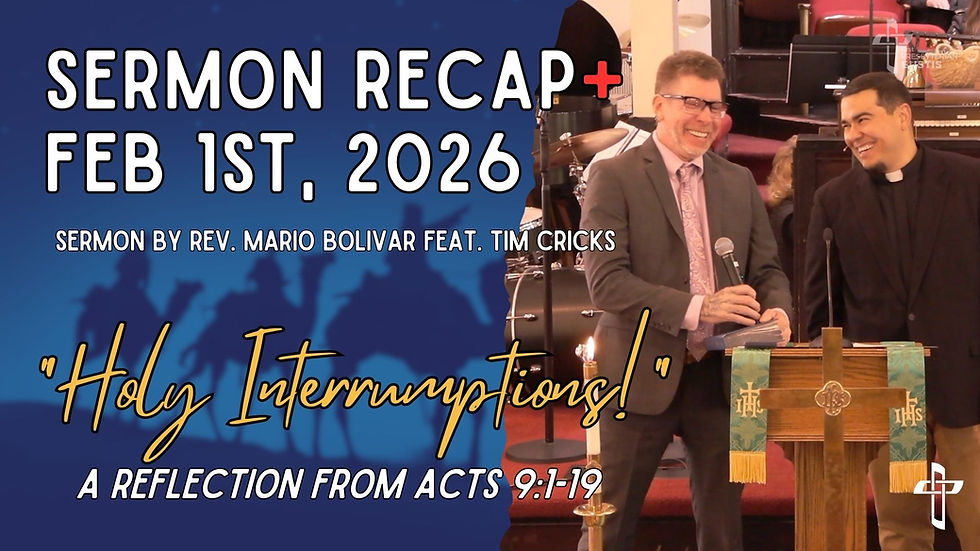Jesus is LORD, but...
- Mario Bolivar
- Dec 16, 2023
- 3 min read
"Jesus is Lord, but is Jesus YOUR LORD?" This question carries immense significance, not only for our faith but also for the way we live our lives, both in private and in public, with family, friends, and even those who may oppose us. This question is taken from the book "Incarnation" by Adam Hamilton, which guided our Advent Bible Study.
The title "Lord" is one that appears prominently throughout the New Testament, used over six hundred times in reference to Jesus. It's a title that carries deep meaning, but in our modern world, it has lost some of its significance. To truly grasp the weight of this title, we must journey back in time and explore its historical context.
In ancient times, "Lord" denoted someone in authority, typically the highest authority within a particular realm, be it a household, a community, or a nation. The word itself evolved from Old English, meaning "loaf-warden," signifying the person responsible for protecting and distributing resources, particularly bread or sustenance, to the family or community. The "lord" was the one "in charge." Interestingly, the term "lady" came from "loaf-kneader," representing the person responsible for making the bread. In patriarchal societies, "lord" and "lady" conveyed authority and function within a home or community. Even today, in some English-speaking countries, the head of a household is still referred to as the "lord." In England, the mayor of a city is known as the "Lord Mayor," and the upper house of Parliament is called the "House of Lords."
Understanding this historical context helps us grasp the significance of calling Jesus "Lord." In the New Testament, the confession "Jesus is Lord" was the earliest Christian creed. It was a declaration of faith, symbolizing the highest authority, similar to addressing a governor or a king. The Greek word for "lord," "kyrios," was used as a mark of respect, much like the English "sir." The book of Revelation even goes so far as to call Jesus the "Lord of lords," emphasizing His ultimate authority and dominion. Jesus is the King of kings, the highest authority in all realms, including the spiritual.
As you consider these ideas and facts.. would you also consider these questions...
1. How has this Christmas been different or more helpful than previous Christmases? As we ponder this, we can consider how recognizing Jesus as our Lord has impacted our celebrations. Has it brought a deeper sense of meaning to our traditions?
2. Why was this Christmas more meaningful or less meaningful than anticipated? Reflecting on the significance of Christ as our Lord can shed light on the experiences and emotions we've encountered during this season. Have we truly embraced His lordship in our lives?
3. What would you do differently? As we think about the future, let us contemplate how acknowledging Jesus as our Lord might shape our choices and priorities. How can His Lordship guide us in the year ahead?
My dear friends, as we close this year and enter a new one, let us ponder the profound implications of recognizing Jesus as our Lord. May His Lordship not merely be a title we confess but a reality that transforms our hearts, our actions, and our relationships.
Let us strive to live in a way that honors His authority, for in doing so, we find purpose, joy, and eternal hope. Be of good courage and know that you are loved.





Comments